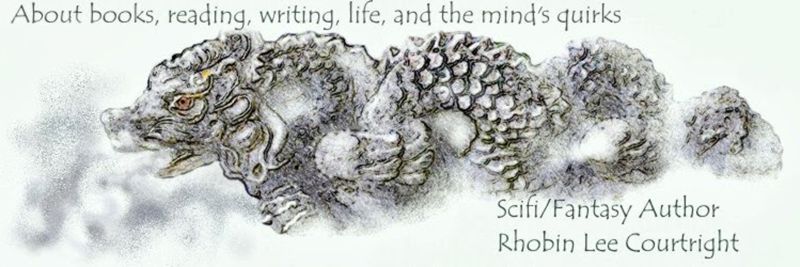Purpose exists in every writing whether it is a reminder note, a letter, a grocery list, an essay or a fiction story.
Non-fiction’s purpose is usually evident. Sometimes a fiction story's purpose is not recognized by the reader, but often the story's genre indicates the purpose. In any type of romance, it is about finding love and a life partner. Mystery stories are about finding the crime's perpetrator. Science fiction is often a warning about today’s problems and how they might affect the future. Fantasy is often about a utopia that isn’t one. Are these the only themes? No, not by a long shot, but most stories must have a purpose. That purpose is often unwritten but one the reader relates to. This usually begins when the main character is introduced and goes on to show his or her encounters and personal growth which extends into a satisfying or deserved conclusion.
When my daughter-in-law arrived from Russia, everyone, including me, asked: “What is it like there?” She answered, “It’s just like here.” Her answer affected my perception. I write science fiction and fantasy and have just completed a historical coming out in August, and I always keep that premise in mind. Wherever the story takes place, people are just like here and now. Humans haven’t changed that much over the eons. Anthropologists are now even proving how Neanderthals possessed many of the characteristics we have today. Why is this important to purpose? Because readers must empathize with characters to engage with the story.
In a Psychology Today article author Thalia R. Goldstein, Ph.D., stated about actors' characters: "What’s interesting is we don’t think space cowboys are real, or that there are fairy tale characters come to life and living in present-day Maine. But, the actors may still be confused with their characters, because in the end, it’s the interpersonal story that we care about—the relationship among the characters’ personalities and objectives." I think Goldenstein's view is true with a novel's characters, too.
I think most of my stories evolve around this. I write about characters in other dimensions and time and about the problems they face and how they solve them as well as exploring possibilities of human capabilities in the future. And my historical? It is in a time and place few are familiar with, the beginning of the Carolingian era in Europe. Again, it's about what the surroundings were like, but the characters remain very similar to today's perception.
Please visit these authors' blog and read their viewpoints on this topic:
Skye Taylor
Victoria Chatham
Beverley Bateman
A.J. Maguire
Fiona McGier
Dr. Bob Rich
Non-fiction’s purpose is usually evident. Sometimes a fiction story's purpose is not recognized by the reader, but often the story's genre indicates the purpose. In any type of romance, it is about finding love and a life partner. Mystery stories are about finding the crime's perpetrator. Science fiction is often a warning about today’s problems and how they might affect the future. Fantasy is often about a utopia that isn’t one. Are these the only themes? No, not by a long shot, but most stories must have a purpose. That purpose is often unwritten but one the reader relates to. This usually begins when the main character is introduced and goes on to show his or her encounters and personal growth which extends into a satisfying or deserved conclusion.
When my daughter-in-law arrived from Russia, everyone, including me, asked: “What is it like there?” She answered, “It’s just like here.” Her answer affected my perception. I write science fiction and fantasy and have just completed a historical coming out in August, and I always keep that premise in mind. Wherever the story takes place, people are just like here and now. Humans haven’t changed that much over the eons. Anthropologists are now even proving how Neanderthals possessed many of the characteristics we have today. Why is this important to purpose? Because readers must empathize with characters to engage with the story.
In a Psychology Today article author Thalia R. Goldstein, Ph.D., stated about actors' characters: "What’s interesting is we don’t think space cowboys are real, or that there are fairy tale characters come to life and living in present-day Maine. But, the actors may still be confused with their characters, because in the end, it’s the interpersonal story that we care about—the relationship among the characters’ personalities and objectives." I think Goldenstein's view is true with a novel's characters, too.
I think most of my stories evolve around this. I write about characters in other dimensions and time and about the problems they face and how they solve them as well as exploring possibilities of human capabilities in the future. And my historical? It is in a time and place few are familiar with, the beginning of the Carolingian era in Europe. Again, it's about what the surroundings were like, but the characters remain very similar to today's perception.
Please visit these authors' blog and read their viewpoints on this topic:
Skye Taylor
Victoria Chatham
Beverley Bateman
A.J. Maguire
Fiona McGier
Dr. Bob Rich

